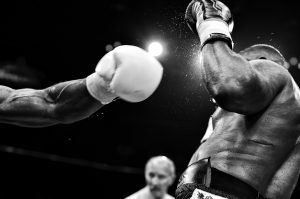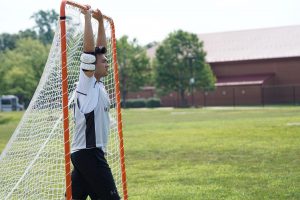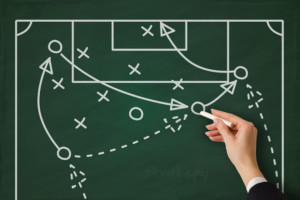articles
articles

A Harvard Study on Happiness and What This Means for Athletes
A Harvard study spanning across 75 years, reveals that honest, authentic, and reliable relationships are the source of happiness, and good physical and mental health. Director of what is one of the longest running studies on adult development in the world, Robert Waldinger, recorded some 13 million views on a TED Talk where he discussed the findings. In this article we share what Athlete Assessments’ Senior Consultant and Director, and Author of ATHLETE TOUGHTM, Bo Hanson, considers these significant findings to mean for athletes, teams, and coaches.

Stay Tough by Finding Your Big WHY
Mental Toughness, resilience, and grit are not naturally occurring attributes that cannot be taught, they are in fact, teachable skills that athletes and coaches can develop in sport, as well as in life.

The Importance of Mental Skills in Preparing Your Athletes for Success
People often put too much emphasis on the physical components of a sports program, without acknowledging that the mental skills which athletes frequently lack are just as critical for success.

Strategies for Building Accountability in Your Team Culture
In sport, accountability means following through on what you say you will do, and executing the task to the best of your ability. It also means, if you don’t get it right, then you stand up to say, “this is how I can do better” and find a way to improve.

Bullying Your Athletes Will Not Make Them ‘Tougher’
Using bullying as a tactic to develop mental skills or toughness is not effective for achieving long term results. During an interview with Dr Jen Fraser, for the End Bullying and Abuse in Sports Summit, Director and Senior Consultant at Athlete Assessments, Bo Hanson, explains Coaches who use bullying tactics will not attain long-term results or succeed in developing the personal growth, mental skills, or mental toughness of their athletes.

What Can Losing Teach Us?
Losing is inevitable at least once during an athlete’s career but learning to reflect and reframe these performances can help us strengthen our resolve for next time. In this article 4x Olympian, Bo Hanson, reflects on his experiences with loss.

What it Takes to Become a Super Athlete
So, what differentiates super champions, champions, and athletes who fall just short of being the best? What separates the best from the rest, what factors can take an athlete to the next level of their performance?

Combatting Unrealistic Expectations of Perfection in Youth Coaching
The standard of perfectionism has never been higher, and the pressure to achieve continues to grow, Bo Hanson explains why we need to teach athletes from a young age to focus on effort and not just executing their performance.
Building Belonging in Sports Programs
Compelling new research has revealed that despite constant connectedness through digital mediums, Gen Y and Z are lacking critical real-world interaction, leaving them lonelier than their older generations.

Olympic Study: What Differentiates Superelite Athletes from their Competition?
In the lead up to the Tokyo Olympics (now being held in 2021), we have been reflecting on the lessons that emerged from the 2012 London Olympic Games. In particular, the research into consistently successful super athletes and the factors that distinguish them from their elite competition. The results may surprise you!

Strategies Matter
You possess the tactical knowledge to develop game plans that play to your athletes’ strengths. Physical strength, dynamic speed and endurance are the subject of debate as your team plots its rise to the top. But how much time do you spend ensuring your athletes are mentally tough?

A Champion Mindset
Defining resiliency is relatively easy. Simply stated, it’s the ability to bounce back positively after a mistake, mishap or loss. In practice, it’s the ability

Tough times don't last. Tough people do.
It is a teachable skill and there are proven strategies to develop your athletes to be Athlete Tough.

